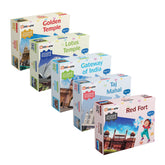Understanding Bad Parenting: Identifying and Addressing Negative Behaviors in the Home

Parenting is a complex journey filled with challenges and rewards. However, some behaviors, though unintended, can negatively impact a child's development. Identifying and addressing these negative behaviors is crucial for fostering a supportive home environment. Here’s how to recognize and rectify poor parenting practices effectively.
Identifying Negative Parenting Behaviors
Inconsistent Discipline Inconsistent discipline confuses children and leads to behavioral issues. When rules and consequences vary, children struggle to understand what is expected of them. This inconsistency can undermine respect for authority and lead to difficulties in following rules. Establishing clear and consistent rules helps children understand boundaries and expectations.
- Overly Critical Attitudes Constant criticism can damage a child’s self-esteem. Focusing on flaws rather than strengths may lead to feelings of inadequacy and lower motivation. Balancing constructive feedback with positive reinforcement is essential for nurturing a child’s confidence and encouraging good behavior.
- Neglecting Emotional Needs Emotional neglect, such as failing to provide comfort or dismissing feelings, can affect a child’s mental well-being. Emotional support is vital for building trust and a strong parent-child relationship. Engaging in meaningful conversations and validating feelings helps address these emotional needs effectively.
- Overprotection While protecting your child from harm is natural, overprotection can hinder their independence and problem-solving skills. Allowing children to face manageable risks helps them develop resilience and confidence. Balancing protection with opportunities for growth is crucial for fostering independence.
- Excessive Control Excessively controlling every aspect of a child’s life can lead to rebellion or anxiety. Children need space to make decisions and express preferences. Encouraging autonomy and supporting their choices fosters independence and self-esteem.
Addressing Negative Parenting Behaviors
- Establish Consistent Rules and Consequences Combat inconsistent discipline by setting clear and uniform rules and consequences. Ensure that all caregivers enforce these consistently. Consistency helps children understand boundaries and promotes respectful behavior.
- Focus on Positive Reinforcement Shift from a critical approach to one that emphasizes positive reinforcement. Praise your child’s efforts and achievements, and provide constructive feedback that focuses on behavior, not character. This approach boosts self-esteem and encourages positive behaviors.
- Prioritize Emotional Engagement Engage with your child emotionally by listening actively and validating their feelings. Spend quality time together and show empathy. Emotional support strengthens your bond and helps your child feel valued.
- Encourage Independence Allow your child to make age-appropriate decisions and face challenges. Provide guidance but let them navigate their experiences. This promotes problem-solving skills and builds confidence.
- Respect Boundaries Respect your child’s boundaries and individuality. Encourage them to pursue their interests and make choices that reflect their preferences. Supporting their autonomy fosters a strong sense of identity and self-worth.
Conclusion
Understanding and addressing negative parenting behaviors is crucial for creating a nurturing home environment. By establishing consistent rules, focusing on positive reinforcement, engaging emotionally, encouraging independence, and respecting boundaries, you can enhance your relationship with your child and support their overall development. Recognizing these behaviors and taking proactive steps to address them leads to healthier interactions and a stronger, more trusting relationship.













Leave a comment
Please note, comments need to be approved before they are published.